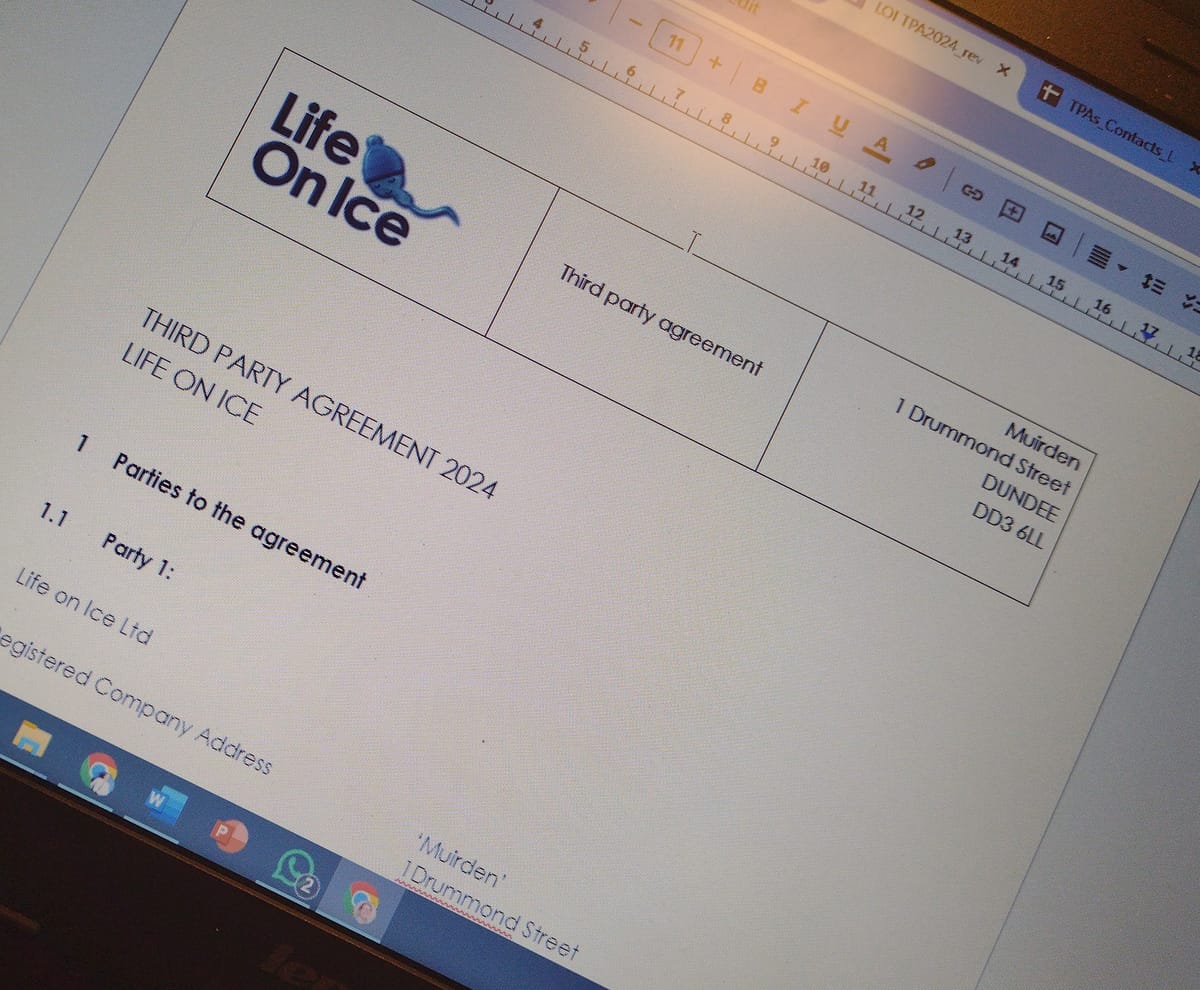Let's talk TPAs

Let’s talk TPAs.
When it comes to moving your sperm, eggs or embryos from one clinic to another, there may be talk of a third party agreement, or TPA. But what is a TPA?
A TPA is a form of agreement. There is a difference between an agreement and a contract, in that a contract is a type of agreement that is legally binding and can be enforced through a court of law.
In an Assisted Conception Unit (ACU), a third party agreement is an agreement outwith the clinic and the patient. It is usually an agreement between the clinic and a company that provides goods and services. This may be, for example, a company that supplies the cell culture media in which the embryos are grown, or service contracts for incubators.
A service level agreement, or SLA, is different and it often between different departments within the same service; this would cover e.g. services from a virology department to an ACU. With SLAs there is often a provision of a service without an exchange of money.
Previously, the service provided by courier companies was a bit of a grey area. Most of the time an ACU leaves choosing and paying for a courier down to the patient or couple. Some have lists of couriers to choose from, and others leave it to the patient or couple to do their own research. The contract is between the patient or couple and the courier company, as that is where the exchange of money takes place, and it is this that makes a contract legally binding.
Recently many regulators, including the HFEA have been using more risk-based approaches and they have been putting third party relationships under additional scrutiny. The HFEA has, in particular, had an increased focus on the use of external couriers.
At Life On Ice, we provide a template TPA to clinics to complete if they wish to enter into an agreement with us. Many clinics have chosen to complete our document as it has obviously been written specifically for a courier company. Some clinics have provided us with their TPA and asked us to sign; sometimes these are a generic document intended to cover all goods and services, and they may have little that is relevant to a courier company. If this is the case, we offer ‘dual signing’, which is when we sign their document, but ask them to also sign ours. This has become increasingly popular over the last year.
We are pleased to hold TPAs with 91 clinics UK wide.
Whenever we are approached about a new clinic we try our best to encourage them to set up a TPA, in line with the HFEA Code of Practice, but some centres proceed without them. A TPA is of benefit to all three parties; the clinic, the courier and, of course, the patient.
Occasionally centres are of the opinion that they only need an agreement if the samples are either going to them or moving from them… In our opinion, it matters equally, regardless of whether the samples are coming or going. These samples are precious and should be handled with the greatest of care, irrespective of where they are moving to or from. The wording in the HFEA Code of Practice doesn’t differentiate between whether the originating centre (the centre where samples are moving from) or the receiving centre ( the clinic that the samples are moving to) should hold TPAs.
Setting up a TPA with a clinic doesn’t usually take long, and is completed via an exchange of paperwork over email. We are happy to set up TPAs with more clinics in future.
